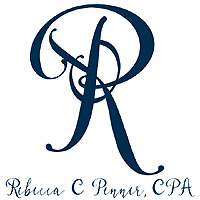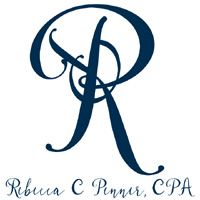
Are your Tax Installments Up to Date for 2021
Tis the season for your taxes to be filed. Are you ready? Did you file all your installments on time? A tax installment is a partial payment of the amount of tax you are required to pay for this tax year. Did you manage to file yours on time?

Need to File your Taxes click to contact Rebecca => 403-966-2814
You are required to pay tax installments for next year's taxes, if your net tax owing is more than $3,000 (for Quebec $1,800) for 2022 and in either 2021 or 2020.
Tax installment payments are due by the following dates (except farmers and fishers who have one due date on December 31st):
March 15 - June 15 - September 15 - December 1
Click the link below for more information from the CRA website:
Required Tax installments for individuals:
If you do not pay your tax installments on time, and the correct amount there will be penalties to pay. Interest and possible penalty charges will be applied if you do not pay the correct amount and/or file on time. If you are unsure what your installment should be and when you should file please click the link to the CRA website to find out:
Corporate Taxes:
For corporate taxes corporations are required to pay their taxes in installments. An installment payment is a partial payment of the total amount of tax payable for the year. The Income Tax Act requires corporations to make installment payments throughout the year. The payments can be paid either monthly or quarterly. Find out if you have to pay installments. What are your installment options? And how to calculate your installment payments. Click the link below:
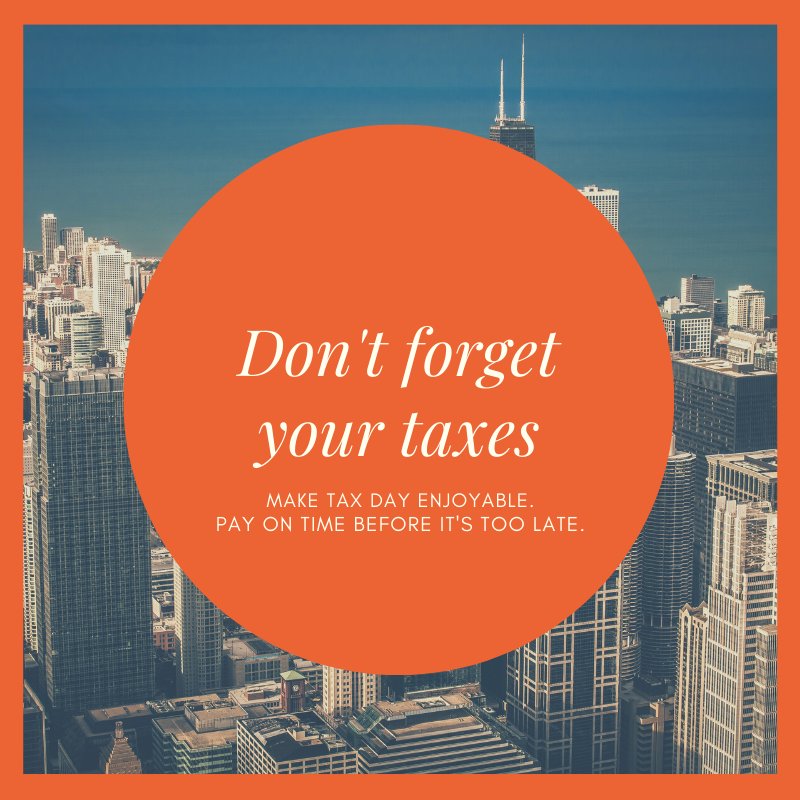
Contact Rebecca C Penner Today at ==> 403-966-2814
Sales Taxes
If you own a small business in Canada, then you are required to collect sales tax from your clients and to remit that sales tax to the CRA. The easiest way to determine the rate of tax to charge to your clients, is to look at the province or territory in which the product is supplied to your customer. Each province has a sales tax but not all are the same.
There are 3 steps to follow in regard to collecting and remitting your sales tax.
See the steps below:
Step 1: Determine if and how much you need to collect from each customer. As stated above this is determined in which province, they live in.
Step 2: Charge the correct amount where your customers are.
Step 3: Remit to the CRA
Finding a professional that can take the worry out of your hands and your tax return will be filed efficiently and effectively within the rules of the CRA. This is an important part in getting the best return you possibly can.
Please contact me for a FREE initial consultation at 403-966-2814
As always thank you for taking the time to read my blog.
If you have any questions, please don’t hesitate to reach out.
Sincerely,
Rebecca C Penner CPA, CGA


The 3 Main Taxes Canadians are Required to Pay
In most countries there are taxes that all citizens are required to pay. Within Canada there are 3 main taxes that are paid by each and every person. These 3 main taxes are listed below:
1. Income tax
2. Sales tax
3. Property tax
We will go into further detail later in the article to explain what these 3 taxes are and why we are required to pay them.
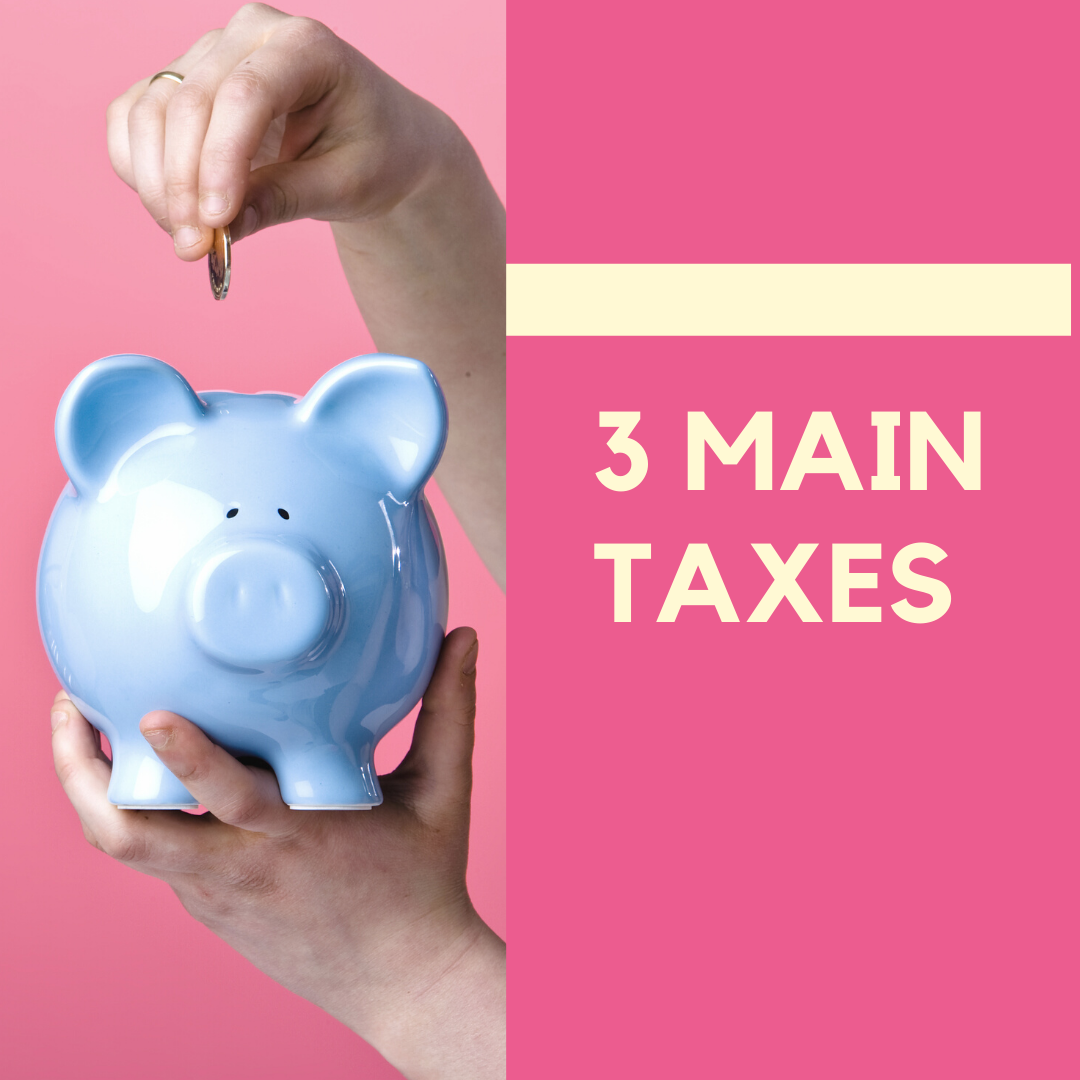
Book Your FREE Tax Consultation ==> https://rcpenner.com/bookkeeping
In Canada taxes are higher than in some other countries because of the services and the quality of life that is provided. Canada has what is called a graduated tax system. Which means the more money you make the more you will be taxed. Keep in mind Canada is the second largest country in the world, in regard to land mass which has a population of only 38 million people. Some of the most northern parts of Canada are still uninhabited.
Therefore, the contributions that each of us make through our taxes are fundamental in helping to fund things like the education system and the health care system as well as maintaining infrastructure such as bridges and roads.
Let's take a look now at the 3 main taxes that each Canadian is required to pay.
1. Income Tax – As mentioned earlier the tax system in Canada is a graduated or progressive system. The more you earn the more you will be taxed. There are 5 federal tax brackets:
a) 15% up to $48,535
b) 20.5% between $48,535 and $97,069
c) 26% between $97,069 and $150,473
d) 29% between $150,473 and $214,368
e) 33% on any amount exceeding $214,368
There are also different tax brackets for each province. Please click the link to see the tax brackets in your province. https://www.canada.ca/en/financial-consumer-agency/services/financial-toolkit/taxes-quebec/taxes-quebec-2/6.html
2. Sales Tax – In Canada we also have what is called a sales tax. This is added to most goods that we purchase. Some provinces such as Ontario and Quebec have a higher sales tax then others such as Alberta. See below for each percentage that will be added to your purchases:
• Alberta GST 5%
• British Columbia GST & PST 12%
• Manitoba GST & PST 12%
• New Brunswick HST 15%
• Newfoundland and Labrador HST 15%
• Northwest Territories GST 5%
• Nova Scotia HST 15% • Nunavut GST 5%
• Ontario HST 13%
• Prince Edward Island HST 15%
• Quebec GST & QST 14.975%
• Saskatchewan GST & PST 11%
• Yukon GST 5%
3. Property Tax – Property tax is collected by the local government where you live. It is the primary source of income for local governments. Property tax is paid by each property and home- owner each year and is used to pay for things such as schools, fire services, road maintenance, and public services such as garbage removal in your city or town.
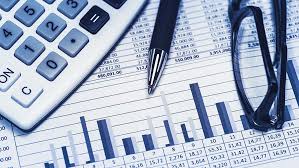
Rebecca C Penner CPA, CGA https://rcpenner.com/contact
As you can see from this article there are quite a few taxes that need to be taken into consideration when either purchasing a home or moving to another province. There are different taxes in each province and each province have their own individual rules. One thing to keep in mind is that here in Canada we live a pretty great life with lots of services that are provided to us if we need to use them. Health care is one major benefit of paying more tax. As a Canadian we don’t have to worry about getting sick. We will always be able to go to the doctor and not be worried we can’t afford the bill.
The 3 main taxes we are all required to pay are worth the services that the funds then bring to our communities. The next time you put your garbage out for pick up remember that service is provided to you because of the tax that you pay.
As always thank you for taking the time to read my blog.
If you have any questions, please don’t hesitate to reach out.
Sincerely,
Rebecca C Penner CPA, CGA


Working from Home: How to File Your Tax Return
Have you been working from home for the past year or so, or have you finally took that giant step, quit your job and opened your own business, whichever circumstance you find yourself in this tax year there are a few things you should know in regards to claiming your home office on your tax return. In Canada the CRA have made a few changes in the way that you can file. If you’ve been working from home, whether it was mandated by your company or you are self-employed. Follow the link to read what the CRA are asking you to do and which forms you will need to fill out to file your tax. => https://www.canada.ca/en/revenue-agency/services/tax/individuals/topics/about-your-tax-return/tax-return/completing-a-tax-return/deductions-credits-expenses/line-22900-other-employment-expenses/work-space-home-expenses/what-changes.html
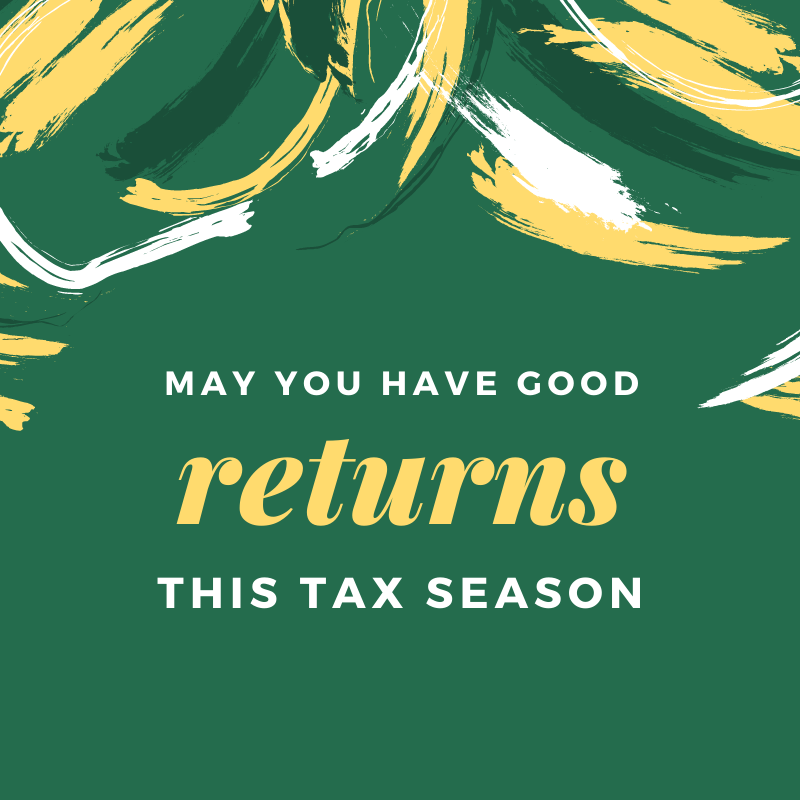
Book Your FREE Tax Consultation ==>https://rcpenner.com/bookkeeping
So, before you go and prepare the paperwork to file your taxes for 2021, let’s see what you can claim and how you go about it:
Let’s take a look at your home office and what you can claim based on how you use that space:
1. In all cases the space you work in at home must be used regularly and exclusively for your work or business.
2. If you are employed by a company then you will need to obtain a signed T2200 from your employer. Also stating that half the time you perform your job at your home or use a home office exclusively for earning income.
3. There are 2 ways to file for the space that you use in your home. One of those ways is a temporary flat fee of $2 per day due to the COVID-19 pandemic. This will cover all your home office expenses. If you prefer not to use the $2 flat fee per day, then the CRA has a calculator you can use. Please click the following link for more information:https://www.canada.ca/en/revenue-agency/services/tax/individuals/topics/about-your-tax-return/tax-return/completing-a-tax-return/deductions-credits-expenses/line-22900-other-employment-expenses/work-space-home-expenses/calculate-expenses.html
4. Internet connection is an obvious necessity these days for working from home. You are able to deduct a portion of your internet expense when it comes to filing your tax. Your accountant will know how to work this out and the portion you are eligible to claim.
5. Telephone service is also a deductible expense you can claim. Again, it boils down to what percentage you use for your work, or better still if you have a work phone then this is completely deductible.
6. Office Supplies like pens, ink, paper etc. Anything that is used in your home office for your job or business is also deductible. Keeping receipts is key to making sure you get the full amount included in your tax filing.

Rebecca C Penner CPA, CGA ==>https://rcpenner.com/contact
When it comes to claiming expenses that you accrued while working from home it is important to be reasonable. Claiming for what it is you are entitled is an important part of the conversation you should be having with your accountant or tax advisor. They are the professionals and will guide you accordingly.
Finding a professional that can take the worry off your hands and file your tax return efficiently and effectively within the rules of the CRA is an important part of getting the best return you possibly can.
Please contact me for a FREE initial consultation at 403-966-2814
As always thank you for taking the time to read my blog.
If you have any questions, please don’t hesitate to reach out.
Sincerely,
Rebecca C Penner CPA, CGA


5 Things We All Hate About Tax Time
The tax discussion can in some circumstances trigger anger and distrust towards the government, not only in Canada but most countries that have the same system. Some of the population have at least a few issues to say the least, with how the governments use our tax dollars.
Let’s be honest most Canadians hate tax time. With April 30th looming fast, most of us are preparing our documents and T4s so that maybe this year we will receive that tax return and not a penalty. Especially if you own a business. You will find yourself in your basement or home office, scouring through box after box of receipts and invoices from the past 12 months. Its time consuming, frustrating and something we all just hate having to do.

Book Your FREE Tax Consultation Today!==> https://rcpenner.com/bookkeeping
If you read my blog last week you will know we talked about bookkeeping and what you can expect from hiring one. The one thing it will stop is searching endlessly through those receipts and invoice boxes we mentioned above. Your bookkeeper will have taken the time all year to prepare your books. Which means your receipts have been recorded, your business visa cards, and bank statements will have been recorded and reconciled. So, no need to iron out those screwed up receipts you tossed in a box last January. It is all done for you. But just in case you need a little more advise keep reading.
Let’s take a look at 5 things we hate about tax time and how we can make it easier:
1. As mentioned above keeping every receipt and invoice that you collect over the past 12-month period, is really not the best way to go when filing your taxes.
Hiring a bookkeeper will eliminate this stress with an added bonus of knowing how your business is doing. You will receive feedback on the financial health of your business throughout the year. While making filing your taxes as easy as 123.
2. Having that constant worry of a possible penalty at the end of the year. This is one that most people really hate about tax time.
This is a simple fix. When it’s time to file your taxes make sure your accountant has everything, she needs to be able to file an accurate return and if necessary, paying your tax bill by the due date or even before.

Rebecca C Penner CPA, CGA ==> https://rcpenner.com/contact
3. Having a possible Audit is worrying to most businesses. Not knowing each tax time if your company is going to be flagged is not a good thought.
What can you do to help alleviate the stress if this situation ever did occur? It all boils down to the same message. Follow the rules when it comes to filing your tax returns. Always use a professional to help you with filing each year’s tax return. As well as keeping your books up to date. If an audit is flagged for your business, then what you have done in regard to filing your tax and keeping your books up to date in the past will be detrimental.
4. Remember the tax dates. When you can start filing and when the deadline is.
If you have an accountant, this part is easy for you. You will have had some correspondence with your accountant as to when they need your paperwork in to be able to file your taxes. The earliest you can file your taxes in Canada is February 21st (electronically), with the last filing date being April 30th.
5. Doing your taxes and getting the news that you have a penalty to pay. One thing that all tax paying citizens hate.
This is something that is out of your control. We know it’s not pleasant to receive that bill, but it needs paying and on time. Don’t wait on this one. Pay your tax bill on time every time.
Last thoughts:
On a last note: Paying taxes is something we all have to do. It’s not a subject most of us like to talk about. But it is part of our society and most of all it’s the right thing to do.
If you need help with your tax returns, please don’t hesitate to contact me. We can set up a FREE consultation to discuss your specific needs and then come up with an action plan.
Thank you for taking the time to read my article.
Don’t miss out on future blogs. Sign up to get them directly to your email inbox hot off the press.
Sincerely,
Rebecca C Penner CPA, CGA

So, you’ve finally decided to pull the trigger and start your own business. As you turn your idea or passion into reality you feel more and more excited and confident that you can make it work. Lots of people nowadays are starting to realise that working for someone else just isn’t going to cut it anymore. When we look back at the last 2 years, we have either been in lockdowns, self-isolating or told to work from home. This is when quite a few people decided enough is enough and quit their jobs to try their hand at entrepreneurship.
Your business is open and running but now you need to start recording all your business transactions and keeping your financials in order. As well as making sure your GST is being filed on time and the right way. Where do you start, and most importantly do you have the knowledge, skill and time to make sure your books are being kept the right way.
FREE Consultation ==> https://rcpenner.com/bookkeeping
This is where hiring a bookkeeper with come in very handy.
Bookkeepers take all the work off your hands when it comes to all financial data for your company. The bookkeeper that you hire will hold a tremendous amount of power within your company. The information that is tracked in the books will help you as a business owner make key decisions that involve sales planning and product offerings and manage many other financial aspects of your business. If it weren’t for the hard work of bookkeepers, companies wouldn’t have any clue about what happens with their financial transactions.
Keeping your books accurate is a key component when tax season is upon us. Detailed records of your businesses financial records will be detriment if the CRA ask for an audit
==> https://www.canada.ca/en/services/taxes/income-tax.html
So, let’s take a look at 5 common expectations when hiring a bookkeeper vs reality:
1. Bookkeeping is too expensive - Expectation
This misconception is why in general people try to do their books themselves with no prior knowledge of bookkeeping. Think of it like this would you decide that your hairdresser is just too expensive and in turn take your kitchen scissors and start chopping away at your lovely locks. (Lockdown times this could have been a possibility; we all saw the videos). Bookkeeping will be less costly than a DIY job in the long run.
Click the link to book a FREE consultation ==> https://rcpenner.com/contact
2. Bookkeepers Free up Your Time - Reality
Hiring a bookkeeper will free up time for you to grow your business. Below is just an example of what a bookkeeper will do to help you:
a. Recording of all bank and visa card transactions
b. Bank Reconciliation
c. Credit Card Reconciliation
d. Making sure your bills are paid
e. Invoice processing
3. Keeping Personal and business accounts separate – Reality
It is very important that as a business owner you open separate bank and visa card accounts as soon as your company is open and running. If you don’t do this and are using one account for both personal and business chances are very likely you will have inaccurate bookkeeping. Some items can be charged through your business account. This is where a good bookkeeper with lots of knowledge will be able to guide you. When it is time to reconcile your accounts bookkeepers should have the skill to be able to differentiate what needs to be taken off your visa and what can be recorded as a business transaction.
4. How to find a Good Bookkeeper: Expectation
When you start the process of searching for a bookkeeper there are a few things to keep in mind. Don’t expect your bookkeeper to just be working solely for you. Unless your company is able to hire a bookkeeper full time. Make sure you interview your potential candidate. As a business owner you and your bookkeeper will work hand in hand, so it is imperative that you get along well. When choosing the right person, it isn’t all about being able to just crunch the numbers it is also about having a good working relationship. This means if you or your bookkeeper need to ask anything of each other it isn’t an uncomfortable situation. Your relationship needs to be both honest and approachable.
5. Keep All Your Receipts – Reality
When conducting any transactions with your business bank card or visa card you do need to keep the receipts. This is vital to keeping accurate records of your business transactions. When it is time to reconcile your bank account and visa account with the statements, if a transaction is questionable then the receipt will tell the bookkeeper where to record that particular purchase.
In conclusion small and medium sized businesses do need the help of a bookkeeper as shown in the 5 points above. If you do decide to take on the job yourself then it is extremely important you understand how to record all your transactions properly and in the right accounts. This will help your accountant to understand your books when it comes to tax time. Which in turn will help to make sure you are getting the right amount on your return.
Last thought: Don’t leave this important task to chance or procrastinate. By this I mean don’t leave getting your books up to date until the end of your fiscal or tax year. This is when lots of problems are created and is where you will end up paying out of pocket for work that needs fixing. If you need any advice, please don’t hesitate to leave me a comment or contact me. I am certain I will be able to guide you accordingly.
Thank you for taking the time to read my article. Don’t miss out on future blogs. Sign up to get them directly to your email hot off the press.
Sincerely
Rebecca C Penner CPA, CGA
